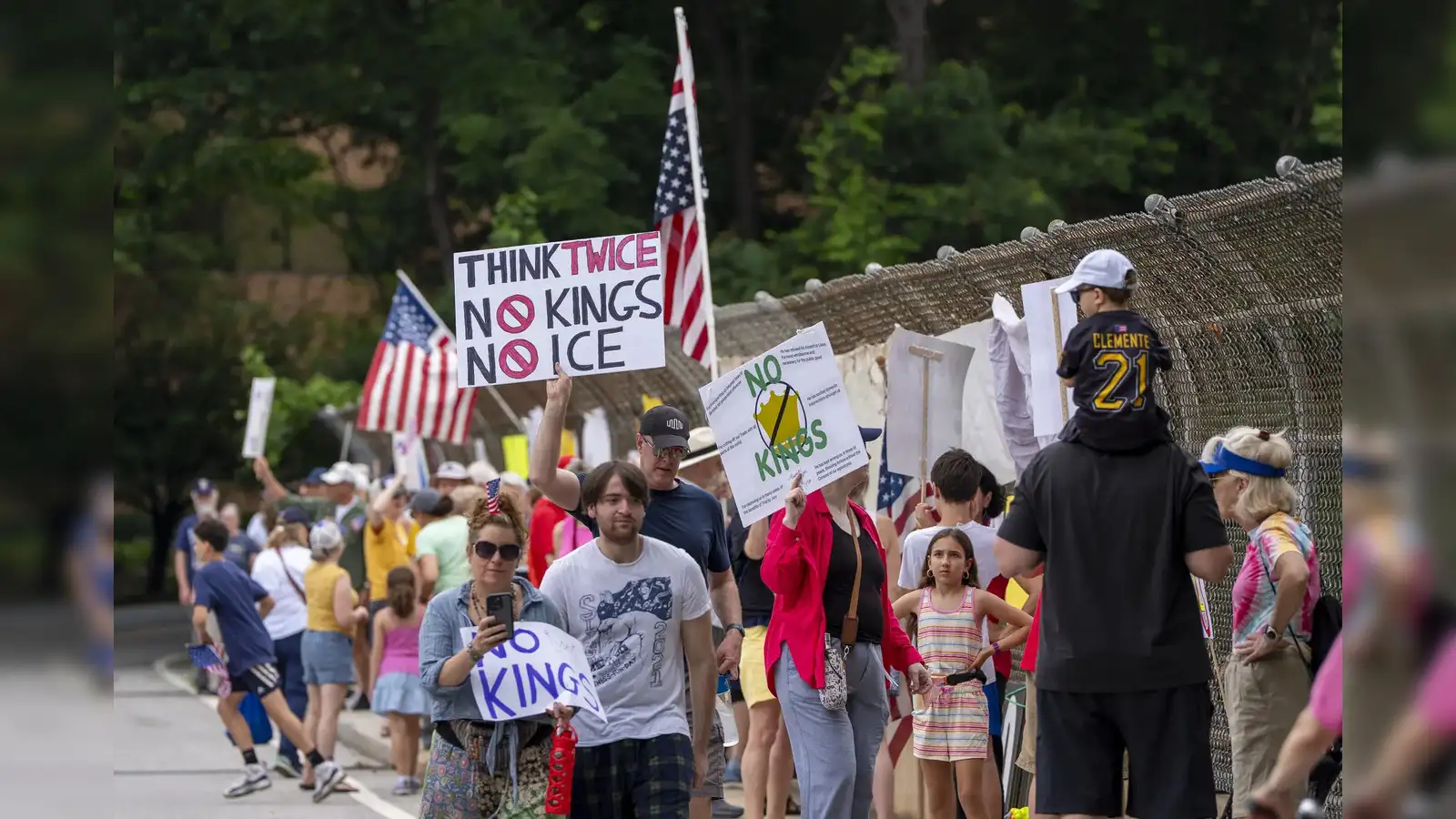
On June 14, 2025, a new wave of civic resistance surged across the United States. Known as the No Kings Protest, this nationwide demonstration unified millions of voices in a peaceful stand against what organizers and participants viewed as creeping authoritarianism. From massive rallies in Los Angeles to coordinated marches in small towns across all 50 states, the movement sent a clear message: America rejects kings, crowns, and unchecked power.
What Is the No Kings Protest?
The No Kings Protest is a decentralized grassroots movement aligned with the broader 50501 Movement—which stands for 50 protests, 50 states, 1 movement. It grew in response to concerns that the country’s democratic institutions are under threat due to increasing executive overreach and symbolic displays of military power, particularly under former President Donald Trump.
The protest’s name is a bold rebuke to monarchic imagery and governance. It echoes the founding values of the United States: no thrones, no rulers for life, and no concentration of power in one individual.
Why June 14? The Triple Significance
Protest organizers strategically selected June 14 for symbolic reasons. The day marks:
-
Flag Day – a celebration of American identity and freedom,
-
The 250th anniversary of the U.S. Army, and
-
Donald Trump’s 79th birthday.
Trump’s supporters planned a military-style parade in Washington, D.C., an act widely perceived by critics as authoritarian pageantry. For many Americans, this date represented a tipping point between patriotism and political propaganda, which is why protesters reclaimed the day as one of defiance and democratic expression.
Massive Turnout Across the Nation
The No Kings Protest was not limited to major cities. From Los Angeles (250,000 attendees) to Hartford, Connecticut (up to 7,000), Americans showed up in unprecedented numbers. Large-scale protests were also held in:
-
New York City
-
Seattle (~70,000)
-
San Diego (~60,000)
-
Denver
-
Colorado Springs
-
San Antonio
-
Dozens of small towns and suburbs
International solidarity events even emerged in cities across Canada, Europe, and South America, under parallel banners like “No Tyrants” and “Democracy First.”
Themes of Peace, Justice, and Accountability
Unlike some earlier political protests marked by friction and violence, the No Kings Protest emphasized peaceful assembly. Protesters carried American flags, homemade banners, and signs advocating for:
-
Civil liberties
-
Immigrant rights
-
Separation of powers
-
Opposition to billionaire influence and corporate authoritarianism
One recurring message seen across protest signs: “This flag is ours too.” Organizers aimed to reclaim national symbols from political misuse and restore them as emblems of shared democratic values.
Tragic Incidents and Escalations
While most events remained peaceful, several tragic incidents reminded the public of the tension underlying such gatherings:
-
In Salt Lake City, a protester was critically injured in a targeted shooting. Authorities quickly arrested the suspect.
-
Vehicles rammed into protest groups in Virginia and San Francisco. Law enforcement identified and detained the drivers.
-
In Minnesota, a politically motivated shooting claimed the lives of a state representative and their spouse. Investigations are ongoing, with links to radical anti-democracy ideology suspected.
Despite these challenges, the overall tone of the day remained nonviolent and powerful, with communities emphasizing solidarity and justice.
High-Profile Support and Cultural Moments
Hollywood actor Mark Ruffalo appeared at a New York City rally, comparing the No Kings protesters to the Avengers—ordinary citizens rising to defend their nation from within.
Other artists, veterans, and civil rights leaders also joined in, amplifying the message across social media and news platforms.
The Bigger Picture: Why It Matters
The No Kings Protest marks more than just opposition to a single political figure. It represents a cultural and civic awakening. Americans across racial, economic, and geographic lines are expressing dissatisfaction with:
-
Executive overreach
-
Symbolic militarization of civic events
-
Erosion of checks and balances
With over 2,000 city-wide events, the movement shows the power of decentralized, community-led activism. Its success also highlights how peaceful resistance and civic education can reignite democratic participation—even in polarized times.
Conclusion: Democracy in Action
The No Kings Protest 2025 will be remembered as one of the largest nonviolent protests in recent U.S. history. It wasn't about party lines—it was about principles. The movement's emphasis on peace, unity, and accountability struck a chord with millions who believe in a government by the people, for the people.
Whether or not future administrations heed this call, the American public has shown that it won’t be silenced. The real strength of democracy lies not in parades or pageantry, but in the voices of those who show up—and on June 14, 2025, they did just that.
